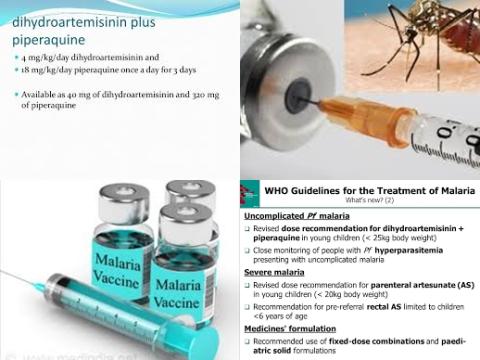
Objectives:
Intermittent preventive treatment (IPT) for malaria is used in infants, children, adults and pregnant women. Dihydroartemisinin-piperaquine (DP) is an effective, well tolerated artemisinin-based combination therapy. The long half-life of piperaquine makes it attractive for IPT. Therefore, this review article (meta-analysis) has been conducted.
The aim of this review article is to assess the efficacy, safety and tolerability of repeated dosing of dihydroartemisinin-piperaquine when used for case management, intermittent preventive treatment, mass drug administration or seasonal malaria chemoprevention?
Study design:
This review article included 1 cohort study in pregnant women (n = 5,288), 1 RCT of repeated treatments in children younger than 5 years (n = 312) and 9 RCTs with IPT/SMC.
Of the 9 RCTs, 5 were in children younger than 5 years (n = 5,481), 1 in schoolchildren (n = 740), 1 in adult men at occupational risk of malaria (n = 961) and 2 in pregnant women (n = 1,846).
In total, there were 14,628 participants; 4,883 in dihydroartemisinin-piperaquine (DP) groups, of whom 4,511 were exposed to DP and 3,935 received at least two courses of DP, including 762 pregnant women and 1,913 children aged less than 5 years. The remaining 9,745 were exposed to placebo or other comparator therapy (including 990 exposed to SP–piperaquine).
The 4,511 participants exposed to dihydroartemisinin-piperaquine (DP) received a total of 18,873 courses, with 18,297 courses taken by the 3,935 participants who received at least two doses, some of whom received as many as 18 monthly doses.
All studies were conducted in areas with no or low parasite resistance to piperaquine or the artemisinins.
Results and conclusions:
The investigators found monthly dihydroartemisinin-piperaquine for intermittent preventive treatment for malaria was associated with an 84% [IRR = 0.16, 95% CI = 0.06-0.26, I2 = 99.4%, p = 0.000] reduction in the incidence of malaria parasitaemia measured by microscopy compared with placebo.
The investigators found monthly dihydroartemisinin-piperaquine for intermittent preventive treatment was associated with fewer serious adverse events than placebo, daily co-trimoxazole or monthly SP.
The investigators found among 56 IPT-DP recipients (26 children, 30 pregnant women) with cardiac parameters, all QTc intervals were within normal limits, with no significant increase in QTc prolongation with increasing courses of DP.
The investigators concluded that monthly dihydroartemisinin-piperaquine appears well tolerated and effective for intermittent preventive treatment for malaria. However, additional data are needed in pregnancy and to further explore the cardiac safety with monthly dosing.
Original title:
Safety, tolerability, and efficacy of repeated doses of dihydroartemisinin-piperaquine for prevention and treatment of malaria: a systematic review and meta-analysis by Gutman J, Kovacs S, [...], ter Kuile FO.
Link:
https://www.ncbi.nlm.nih.gov/pmc/articles/PMC5266794/
Additional information of El Mondo:
Find more information/studies on food fortification/malnutrition and study design/meta-analysis/significant right here.
Intermittent preventive treatment (IPT) or intermittent preventive therapy is a public health intervention aimed at treating and preventing malaria episodes in infants, children, schoolchildren and pregnant women.